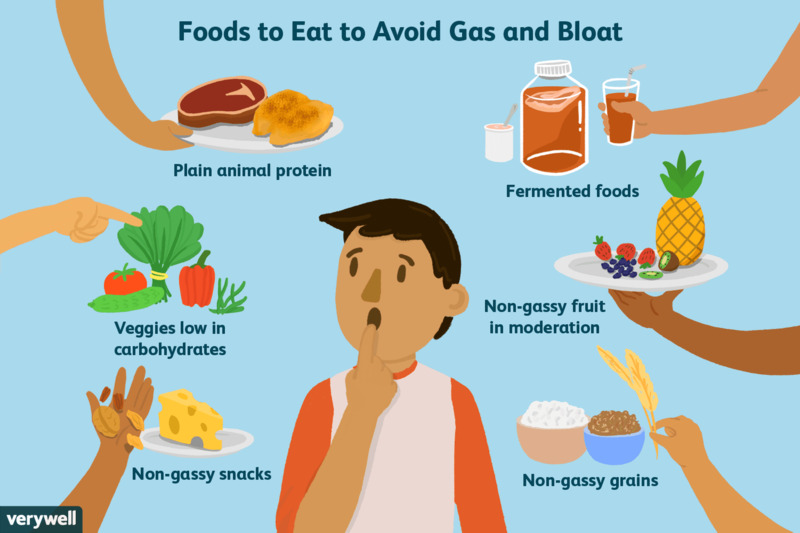Understanding Flatulence - Causes and Solutions
Dec 16, 2023 By Nancy Miller
Many individuals find excessive gas, or flatulence, discomforting and embarrassing. While the natural function of passing gas is normal, persistent or excessive flatulence could signal underlying digestive health issues. This article explores a myriad of causes for flatulence intending to offer practical solutions that promote better digestive health.
Signs You Are Farting Too Much
Though a natural bodily function, excessive flatulence can signal underlying issues. Recognizing signs of increased farting may prompt you to take proactive steps in addressing potential causes.
1. Frequency and Duration:
If you experience a persistent daily flatulence rate exceeding 20 instances over an extended period, this might signal excessive flatulence. The presence of chronic flatulence, lingering for weeks or months without improvement, demands attention and warrants investigation.
2. Odor Intensity:
An unusually strong or foul-smelling gas could indicate dietary factors or underlying gastrointestinal conditions, despite occasional odor being normal. If the consistently offensive and disruptive nature of this smell affects your daily life, you might consider investigating it further.
3. Accompanying Discomfort:
If you experience flatulence along with abdominal discomfort, bloating, or cramping, this may signal a digestive system imbalance. Should the persistent discomfort significantly impact your quality of life, it is prudent to seek medical advice. This could potentially address underlying health concerns and restore balance within your body's systems.
4. Changes in Stool Patterns:
Increased flatulence and alterations in bowel habits, such as diarrhea or constipation, might indicate an underlying gastrointestinal issue. Active monitoring of stool pattern changes and promptly reporting them to a healthcare professional can significantly assist in diagnosis.
5. Social Impact:
Excessive flatulence, causing social discomfort or embarrassment, may impact mental well-being. If you consistently avoid social situations due to this condition, it is imperative for your overall health and happiness that you address the issue.
Common Causes of Flatulence
Various factors, often related to the digestive system, can cause flatulence. Managing excessive gas effectively necessitates a crucial understanding of these causes.
Dietary Factors
Certain foods such as beans, lentils, cabbage, and carbonated beverages in particular are renowned for triggering excessive flatulence. They catalyze an increased production of gas within our digestive systems.

The role that our diet plays in this process is significant. It directly influences how much and what type of intestinal gasses we produce. Also, individuals with lactose intolerance may undergo a surge in gas production after consuming dairy products. This serves as further evidence to support the profound impact diet can have on flatulence levels.
Swallowing Air
Engaging in common habits such as chewing gum, drinking through straws, or consuming meals too quickly can inadvertently result in the ingestion of excess air while eating or drinking. This contributes to an increase in flatulence.
Gastrointestinal Conditions
Conditions like irritable bowel syndrome (IBS), inflammatory bowel disease (IBD), and celiac disease disrupt the normal digestive process due to their underlying gastrointestinal nature. This disruption leads to increased gas production. Persistent flatulence, therefore, may have its roots in these contributing factors.
Strategies for Managing Excessive Gas
A combination of lifestyle modifications, dietary changes, and in some cases medical intervention addresses excessive gas. The following presents practical strategies for managing and alleviating flatulence.
Dietary Adjustments
To significantly reduce flatulence, identify and eliminate gas-inducing foods from your diet. Track your diet and symptoms by maintaining a food diary. This will assist in pinpointing specific triggers. Gradually reintroduce the eliminated foods to identify those that may cause discomfort.
Slow and Mindful Eating
Engaging in mindful eating is a practice that necessitates thorough chewing of food and deliberate, slow consumption. This can curtail the volume of air swallowed during meals. A simple yet potent approach mitigates flatulence stemming from overindulgent air intake.
Probiotics for Digestive Health
Beneficial bacteria, known as probiotics, bolster a healthy digestive system. By incorporating foods rich in these helpful microorganisms such as yogurt, kefir, and fermented vegetables into your diet, you can balance the gut microbiota. This may lead to reduced flatulence.
When to Seek Medical Attention?
Normalcy encompasses occasional flatulence, yet one must seek medical attention for persistent or severe symptoms. It is crucial to understand the timing of seeking help to address underlying health issues.
- Persistent Symptoms
Should flatulence continue unabated even after implementing dietary and lifestyle modifications, it is advisable to consult a healthcare professional. Such persistent symptoms might signify an underlying gastrointestinal condition necessitating medical evaluation.
- Associated Symptoms
Abdominal pain, bloating, diarrhea, or weight loss accompanying symptoms may indicate a more profound underlying issue. These are red flags. Prompt medical attention is essential. It aids in the identification and addressing of potential health concerns, an action crucial for maintaining one's well-being.
Preventing Excessive Farting - Practical Strategies for Digestive Harmony
Though occasional flatulence constitutes a natural aspect of the digestive process, persistent or excessive gas, on the other hand, can prove bothersome. Thankfully, there exist practical strategies to not only prevent overwhelming farting but also promote harmony within digestion.
- Mindful Dietary Choices:
Identify foods known to cause gas, such as beans, lentils, cruciferous vegetables, and carbonated beverages, avoid these. Gradually reintroduce the eliminated food items. This is a process that allows pinpointing of specific triggers. This is key in creating your personalized diet, one friendly towards minimizing excessive flatulence.
- Balanced Fiber Intake:
Support your digestive health by ensuring a balanced intake of both soluble and insoluble fiber. Whole grains, fruits, and vegetables are excellent sources of essential fiber that do not trigger excessive gas production.
- Hydration Habits:
To bolster the digestive process and stave off constipation, a potential catalyst for excessive gas, maintain optimal hydration. Opt for a strategy of consuming water between meals, not during them. This approach will mitigate the ingestion of air.

- Avoiding Carbonated Beverages:
Choose non-carbonated alternatives to reduce the production of gas. Carbonated drinks introduce additional gas into your digestive system, which contributes to bloating and flatulence.
Conclusion - Prioritizing Digestive Health
Understanding the various causes of excessive flatulence and implementing practical solutions such as lifestyle adjustments and dietary changes can promote better digestive health. It may mitigate the discomfort associated with this common issue.
However, should symptoms persist or accompany other concerning signs, a crucial step is to consult a healthcare professional for not only a thorough evaluation but also appropriate guidance.







